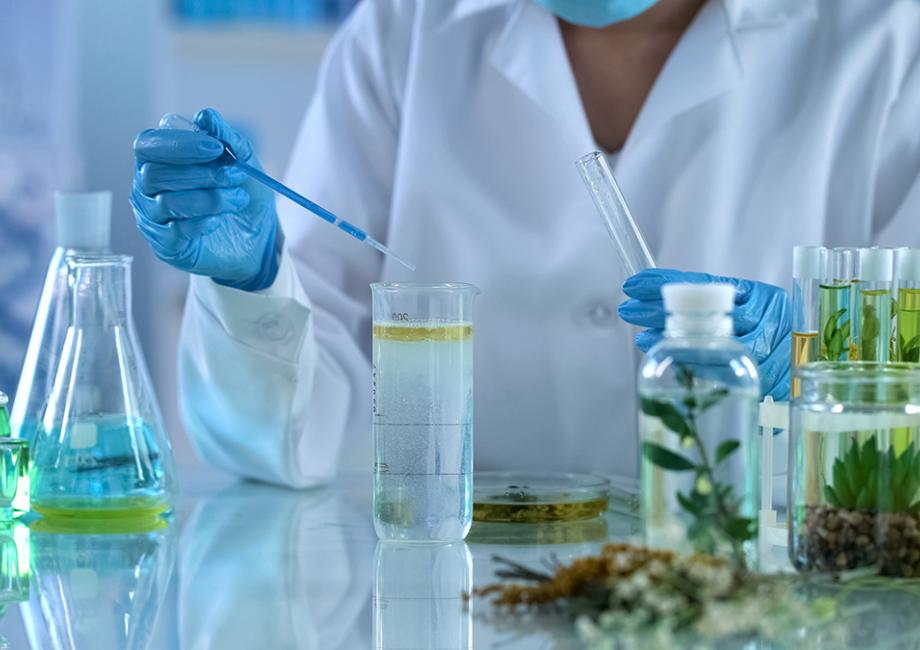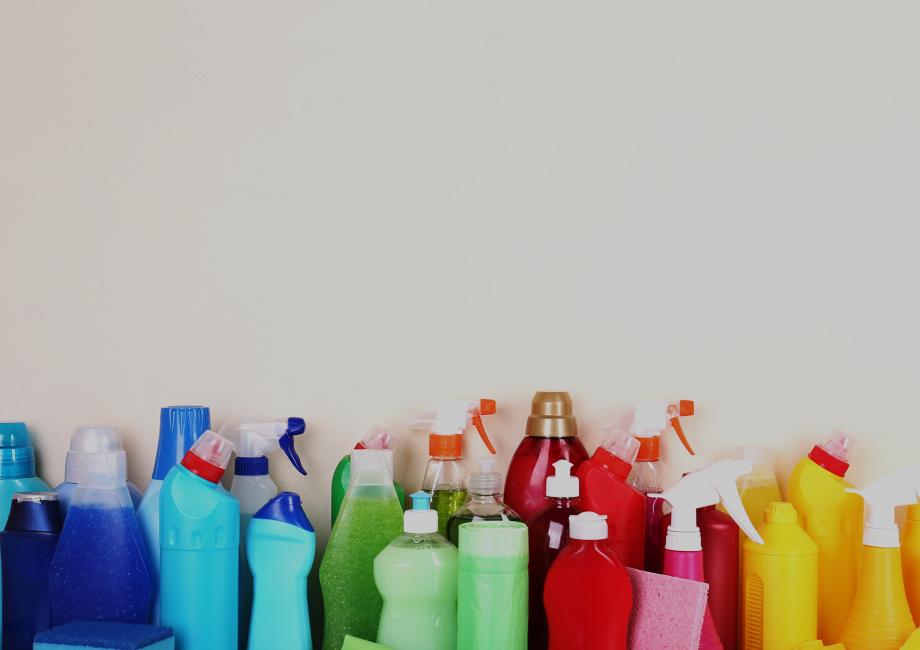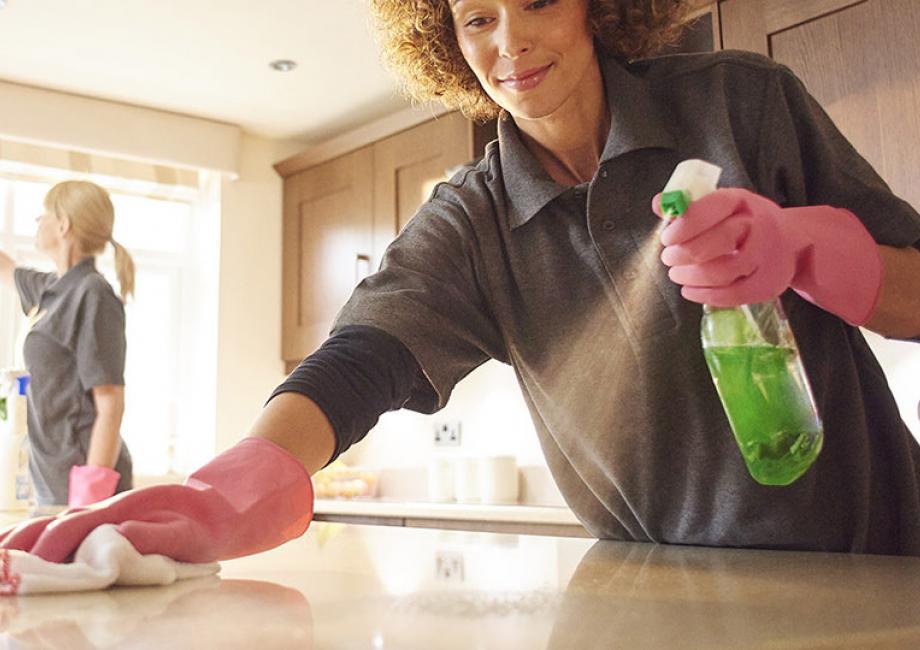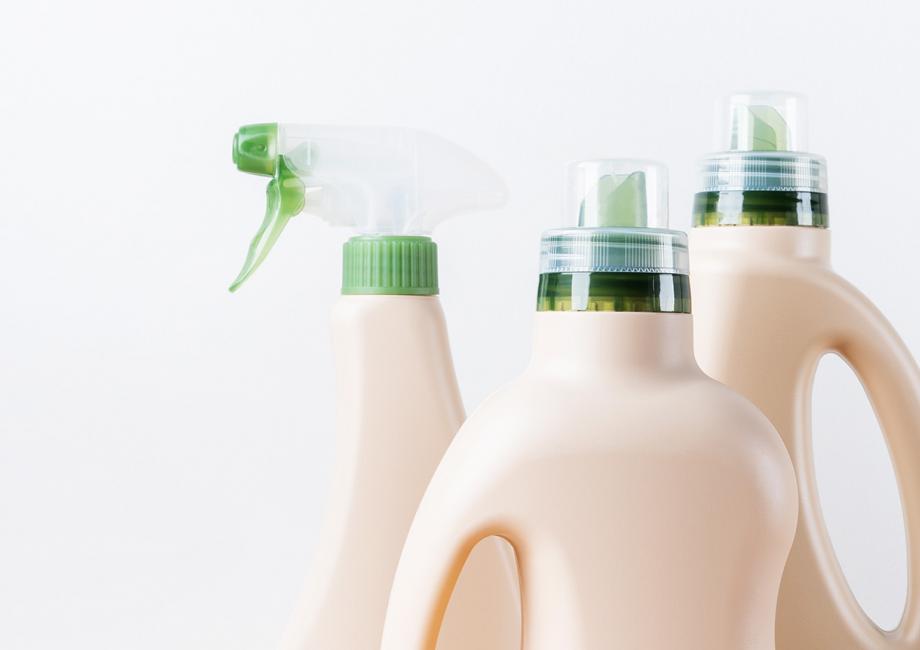
A preserved product is more sustainable, allowing for a longer shelf life and helping to reduce waste.
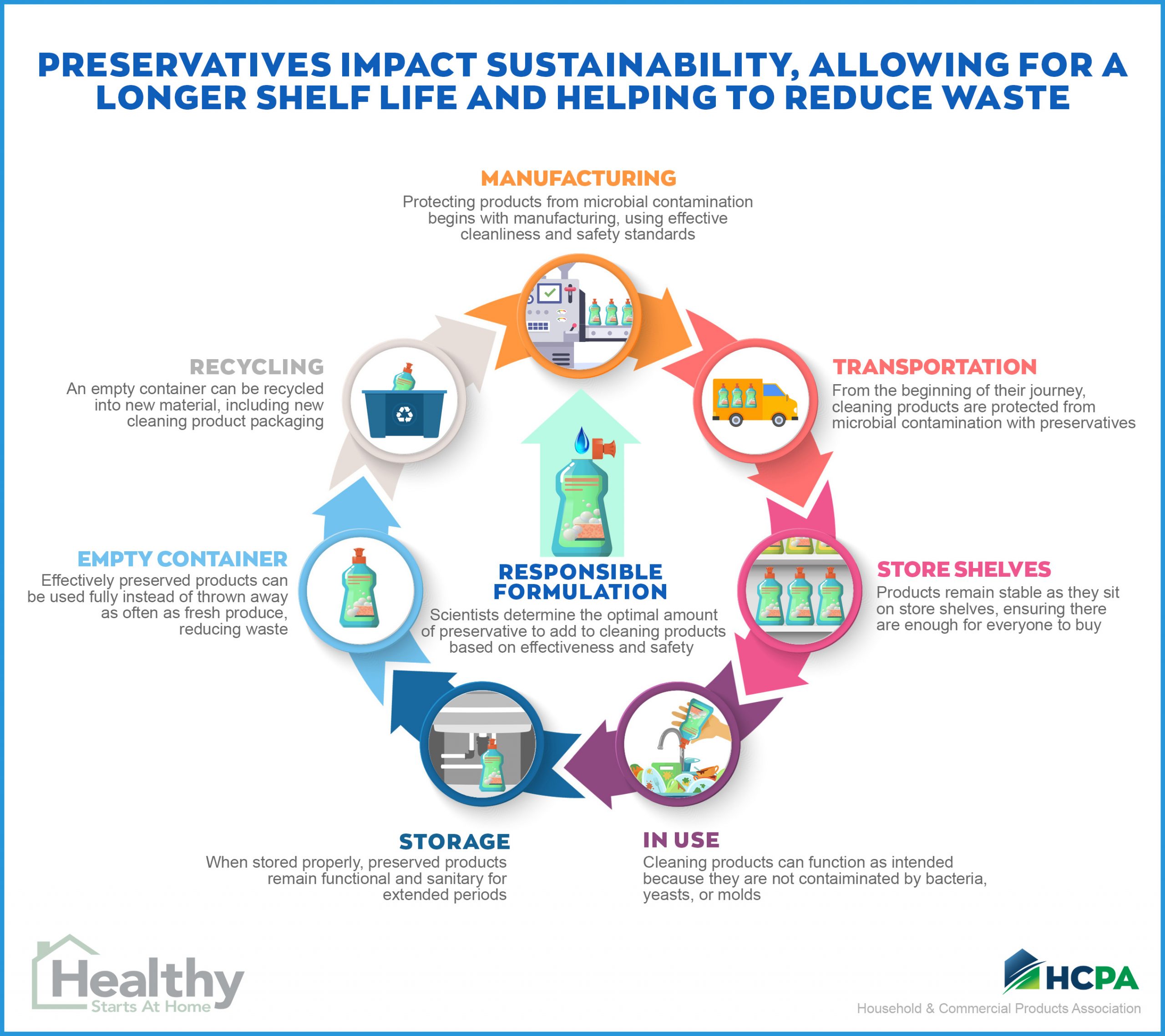 Preservatives play a key role in creating sustainable cleaning products. Sustainability is an important value because we all want products that are safe, not only for ourselves, but also for the environment.
Preservatives play a key role in creating sustainable cleaning products. Sustainability is an important value because we all want products that are safe, not only for ourselves, but also for the environment.
As products become more sustainable, water has become the main solvent and a central ingredient used in cleaners. The use of biorenewable ingredients has also increased, which provides a food source for bacteria, yeasts, and molds. This combination of increased water and biorenewable ingredients creates a more hospitable environment for microbes to grow. Once these harmful microbes contaminate a product, it becomes spoiled and un-useable. A spoiled product must be disposed of immediately because it is ineffective and can introduce unwanted bacteria and fungi to other areas of the home.
Preservatives prevent cleaning products from spoiling. This allows the product to last through its intended shelf life, which reduces waste by not having to throw it away prematurely. We can all agree that it would be frustrating to have to replace your dish soap as often as you buy fresh produce.
On average, cleaning products can last for up to one year when properly preserved compared to only a few days or weeks without preservation. Imagine if you – or your local stores – had to dispose of every cleaning product after just a few days. Not only would there be wasted product, but trash would also accumulate much faster. On the other hand, an effectively preserved product can be fully used, and the empty container can be recycled and made into new material, which is an important part of a circular economy.
Microbial growth in cleaning products could also result in a recall, especially if it poses a potential threat to health or safety. Recalled products must be pulled from store shelves, warehouses, and homes, generating a large quantity of garbage at once. Additionally, the products must be remanufactured and replaced, which requires the excess use of materials, such as ingredients and packaging. By properly preserving products, a wasteful recall can be avoided.
In addition to creating more waste, if everyone needed to replace their cleaning products more frequently, fewer products would be available on store shelves due to re-purchasing. This is especially critical during a public health crisis, such as COVID-19. During the coronavirus pandemic, we have relied on cleaners and disinfectants to protect our families and homes. Preservatives play an important role in ensuring that stores have enough viable products to keep up with demand.
By preventing spoilage, preserved cleaning products can last longer and result in less waste, making them more sustainable.
